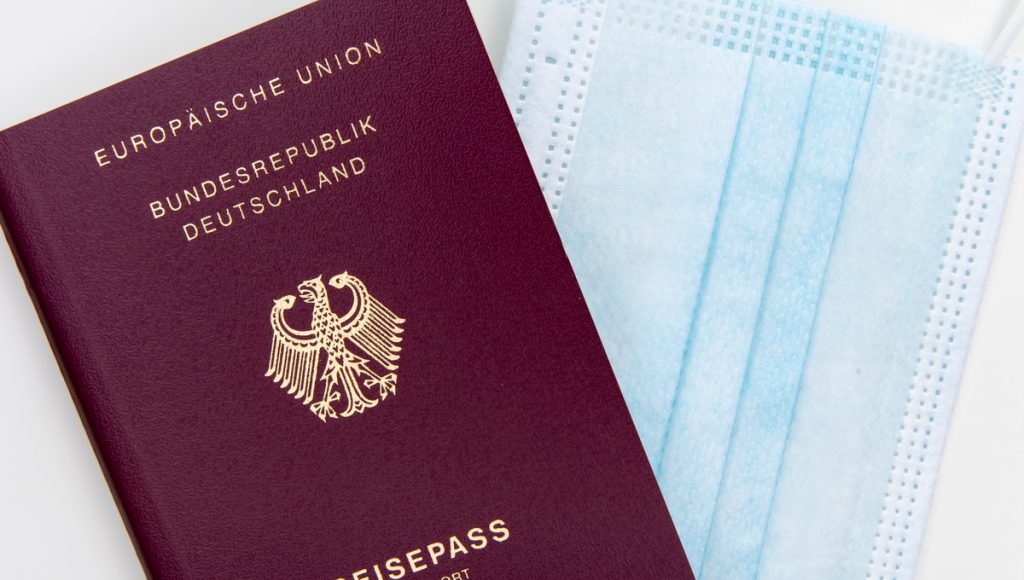
Refugees in Germany. There’s a new law in Germany that could end the uncertainty around residence for more than 100,000 migrants, who have stayed in Germany with a ‘tolerated status’ for 5 years or longer. This begins with a 1 year residency status ‘on probation’. Here’s what you need to know:
What does it mean to be granted ‘Duldung‘ in Germany?
- A ‘Duldung’ (‘tolerated stay’ meaning ‘temporary suspension of deportation’) occurs when an asylum seekers application is rejected with no possibility of deportation according to humanitarian or technical reasons.
- It is not an actual residence permit, but a document that allows the migrant to temporarily reside in Germany for a limited time.
- Several rejected asylum seekers receive ‘Duldungen’ in a row adding up to five years living, and in some cases working in the country without fixed term prospects of remaining.
- The foreigners’ office is responsible for determining the duration of ‘Duldung’
What does the new law mean?
- The ‘Chancen-Aufenthaltsrecht’ (‘opportunity-residency right’) draft law, introduced early June and implemented by German cabinet on July 6 2022, is yet to be approved by German Parliament.
- It plans to grant residence permits (Aufenthaltserlaubnis) to those who have lived for at least five years in Germany (as of January 1, 2022). This new scheme will apply to the applicants’ close relatives, even if they haven’t lived in Germany for five years.
- Within the 12 months, all who received temporary residence permit have to meet requirements for permanent residence. These consist of the ability to financially support themselves, adequate German language skills and having ones identity resolved.
- In accordance with residence law section 25b, those who meet requirements will receive an extension on their residence permits.
- Those with tolerated stay who provide false information about identity or guilty of criminal offence, are left out from the new law as well as their relatives.
Who can apply for residence permit?
According to Mediendienst Integration, all holding a “long-term tolerated stay” have been eligible to apply for a residence permit since 2015.
- Persons who are tolerated and are ‘sustainably integrated,’ meaning they have lived in Germany for a longer time period and are able to financially provide for themselves. Minimum 8 years for those living alone and 6 years for families with underage children.
- Teenagers between 14-18 years and young adults between 18-21 years, who have lived in Germany a minimum of 4 years or acquired a school or vocational degree. Once they succeed, siblings and partners can also get a residence permit.
- Those with ‘qualifying vocational training’ or skilled workers, with minimum 3 years employment as well as adequate language skills and living space.
- People who seemingly can’t be deported in the supposable future.

Who receives a ‘Duldung’ status?
Third-country national and rejected asylum seekers without a residence permit are requested to leave the country. On condition that they don’t do so between 7 to 30 days, they are subjected to deportation. The deportation can be delayed or suspended provided the:
- Suspension by state authority for a maximum 3 months, for reasons related to international law or humanitarian reasons.
- Migrant pursuing a ‘qualifying vocational training’
- He/she has an underage child in possession of a residence permit.
- Close relation to another person with tolerated stay.
- Possession of a doctors notice officially stating they have a serious illness that hinders deportation.
- Provide legal reasons such as missing travel documents, making it impossible for removal.
- Those with ‘Duldung’ under apprenticeship can have their stay extended until they are finished. This could last up to 3 years according to German law, plus two years of ‘Anschlussbeschäftigung’.
- From 2020, persons with tolerated stay who have worked in Germany for at least 1 and a half years, were eligible for ‘temporary suspension of deportation for the purpose of employment’, a so-called Beschäftigungsduldung. It commonly lasts 30 months and can be extended or result in a residence permit if applicant meets necessary conditions.
How many ‘tolerated’ and ‘obliged to leave the country’ are living in Germany?
- Almost 300,000 people in Germany are currently obliged to leave the country or ‘ausreisepflichtig’. This group consist of rejected asylum seekers as well as foreign students, tourist and employees whose visas have expired. The number rising by 43% since 2015.
- About 64% of asylum seekers are obliged to leave the country.
- About 242,000 of people obliged to leave the country have a ‘Duldung’. Around 100,000 have been living in Germany for 5 years or longer, according to Mediendienst Integration. The federal government spoke of the remaining 17% about 136,000 people without ‘Duldung’, are imminently obliged to leave the country.
- The most common reason for a ‘Duldung’ is missing travel documents. Other reasons include, urgent humanitarian or personal reasons, such as finishing school/apprenticeship or caring for family members, ban on deportation for certain groups or certain states, medical reasons, unaccompanied minors and a variety of other reasons, making up one third of all ‘Duldung’ cases.
READ ALSO: How to get your visa and residence permit when coming to Germany for studies
